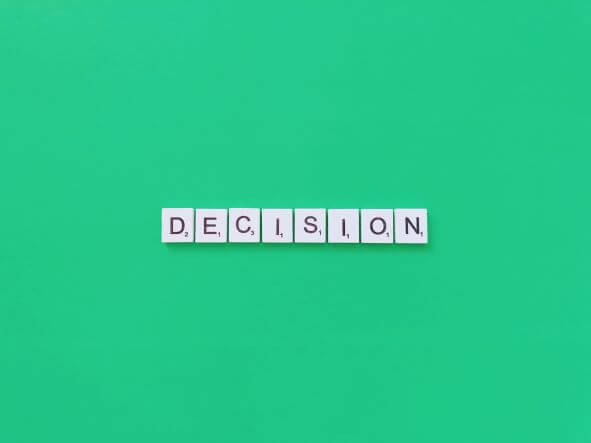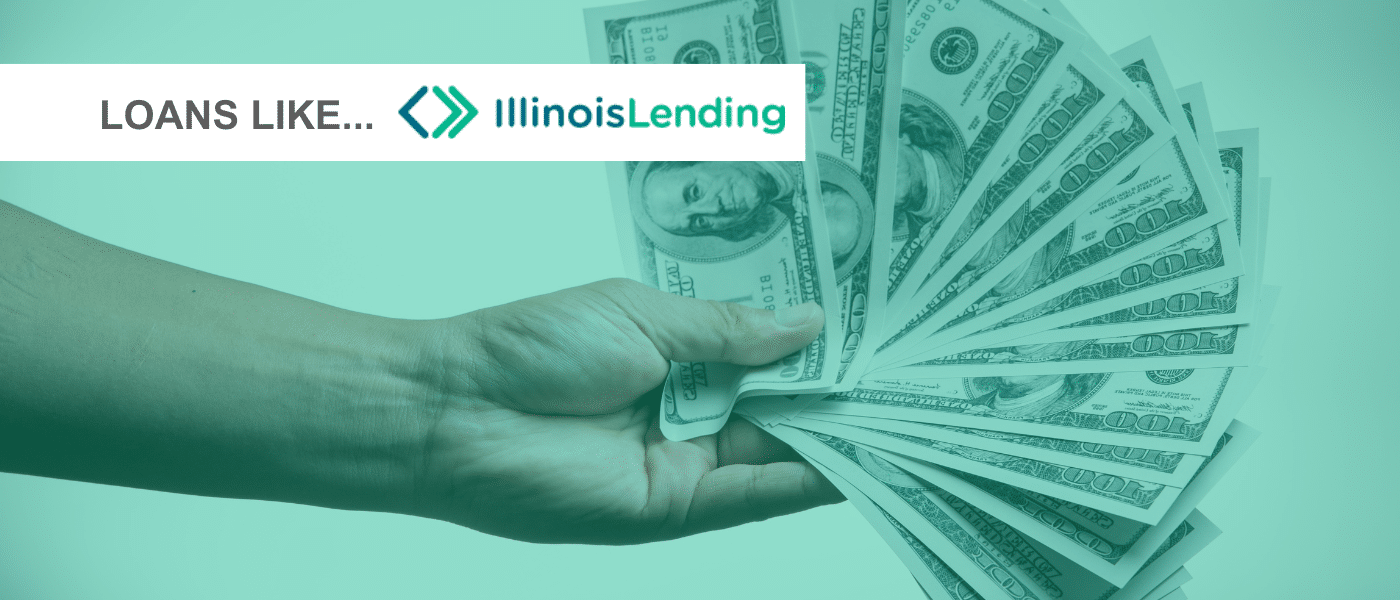A certified check means that a financial institution like a bank guarantees that there is enough funds to cover the check, while a personal check does not take that into consideration.
This blog will look at how certified checks and personal checks stack up in some key areas. Ultimately, your choice may come down to how quickly, securely, and effortlessly you want to manage your money. Read on to figure out what option will work best for you.
What Is a Certified Check?
Simply put, a certified check is a check that the bank also issues. This kind of check converts cash into a check used to send money to a business or individual. These checks provide access to your account. They may be referred to as official bank checks.
How Do One of These Checks Work?
If you want to use a certified check, you must visit the bank branch that holds your checking account (or other financial institution such as a credit union).
When you request one of these checks from, let’s say, a bank representative/teller, they will ensure that your account holds the funds to cover the check.
Once this information is verified, a hold is put on the desired amount and can only be released when someone cashes or deposits the certified check.
Advantages
Certified checks bring two significant advantages to the payee:
- Security Due to Guaranteed Funds – Since the bank has the money, there’s no question that the funds are available to the payee whenever they request them.
- Speed – Whenever the certified check is cashed or deposited, it takes only a business day to release the funds.
Disadvantages
On the other hand, the security and speed that certified checks provide do come with some critical realities:
- Frozen funds. Once your check amount is certified, you will no longer have access to your money. Those funds are available only when the payee deposits the certified check. Think of a certified check as a “non-refundable purchase.”
- Complex cancellation. If your certified check is lost or stolen, stopping payment on it can be a tricky process. You will have to visit your bank and fill out paperwork that declares the check as lost.
It may take up to 90 days to get your money back, and in that time, a fraudster could find the check and cash it before your claim is registered. The cancellation process is expensive; fees for canceled certified checks run at least $30 at most banks.
Certified Check vs. Cashier’s Check
Certified checks are easily confused with another popular bank product—the cashier’s check. A cashier’s check is also a check that a bank writes. But when you use a cashier’s check, those funds are drawn directly from the bank. Cashier’s checks are typically used for large purchases, like for a down payment for real estate.
To purchase a cashier’s check, you give the bank or credit union the money you want to convert and whatever processing fees apply (typical costs run from $5-$15). The bank will then print a check with the payee’s name and information on it. However, the bank is the payer instead of you. The cashier’s check is then mailed to the payee or delivered to you.
Regardless of the delivery option, you should always get a receipt for your cashier’s check. Both cashier’s checks and certified check options are drawn against the bank’s account, which ensures payment.
What Is a Personal Check?
A personal check is a check that allows funds to be drawn from your account. While these checks are not tied to other accounts, other people can write checks if the account holder allows them. Although personal checks have decreased in popularity, in 2022, according to a survey conducted by Yahoo Finance, 55% of Americans still used personal checks.1
If you know how to write a check, you can write one to a business or individual (the payee) for any amount you need to pay. The only catch is that any check you write needs to be for an amount of money currently available in your account. If you write and try to deposit a bad check, your bank or credit union will refuse the check or cash it and charge you an overdraft fee.
Depending on your bank’s practices, a book of checks is either included as part of your bank account or is available for a nominal fee.
Advantages of a Personal Check
Even though credit and debit cards cover most day-to-day transactions, personal checks are still used for rent or sending payments through the mail.
There is a sort of “old-school” protection that comes with a check. Personal checks require your signature, and most retailers that accept checks require the writer to present a photo ID—which makes them difficult for thieves to use.
Banks can trace checks, so if one is stolen or misplaced, it can be canceled. Additionally, your payee doesn’t necessarily need a bank account of their own to cash your check.
Disadvantages of Personal Checks
The biggest drawback to personal checks is in processing them. When you write a check, the money will remain in the bank until the payee cashes or deposits it. That means that you have to account for it in every other transaction you make so you don’t overspend.
Additionally, since businesses widely accept debit cards, fewer businesses accept checks, as they take longer to clear from a bank.
Personal Checks vs. Certified Checks vs. Cashier’s Checks
Now that you know more about these three types of checks—certified, cashier’s, and personal—you might be wondering if there is an option that will work best for you.
Both certified checks and personal checks pull funds from your checking account. However, the big difference between personal checks and certified checks is the availability of those funds.
A personal check can only pull whatever funds are available upon deposit—regardless of the amount for which it’s written. That means you have to be responsible for balancing your checkbook to make sure you don’t overspend until your payee cashes your check.
On the other hand, banks guarantee certified checks. Since the certified check is always good, it is a much more secure way to pay.
When it’s in a cashier’s check, your cash becomes the bank’s cash. The federal government, under the FDIC (Federal Deposit Insurance Corporation), guarantees bank deposits. That protection ensures that the funds will be available to the payee as soon as they deposit or cash the cashier’s check at a bank.
And since those funds aren’t coming from an account, you don’t even need to have a bank account to use a cashier’s check. That makes cashier’s checks an excellent option for people who may not have bank accounts due to bad credit history. Many people in that position have found relief by applying for bad credit loans such as payday loans and some personal loan options.
So when it comes to picking a check option, the answer may come down to just how quickly and safely you need to send your funds. If you want to do it cheaply, a personal check is probably the way to go. To keep it as secure as possible, you may want to consider a certified check.
Check Scams and Fraud
Whether you get a cashier’s check, certified check, or personal check, there is one fact you have to consider with any of these options—theft. Check fraud continues to be a big problem, with banks reporting billions of dollars in losses every year. The FTC’s Consumer Sentinel Network database shows that people reported more than 27,000 fake check scams in 2019, with reported losses topping $28 million dollars.2
Certified Check Scam
Certified checks can be counterfeited, passed off as legitimate payments. When a bank receives a certified check, it must give the payee the funds within a business day. However, it may take longer for verification to come back on the check. Sometimes, verification on a certified check can take weeks—more than enough time for a scammer to disappear with the cash.
Cashier’s Check Scam
A typical cashier’s check scam involves selling items online. Using sites like Craigslist, a buyer will connect with a seller and provide a cashier’s check for payment written for an amount larger than the purchase price.
When the seller deposits the check into their bank account, the buyer asks for the extra money they sent “by mistake.” After the seller withdraws the money, the bank discovers that the cashier’s check was fake. But, the seller is left responsible for the lost funds.
Personal Check Scam
Personal checks are sometimes the easiest to use for fraud. People can be paid for goods and services with bad checks and typically don’t find out about it until they attempt to cash the check. And a stolen checkbook full of your checks can be a jackpot for a thief. Because your name, address, and account number are printed on the check, anyone can use them to send payments to other people.
How to Protect Yourself From Scams
If you get a cashier’s check, personal check, or certified check, use these tips to help keep you on the lookout for scams:
| Tips to Protect Yourself From Scams | Description |
| 1. Check Amount | Never accept a check for more or less than the correct amount. If the received check’s amount is different from what you expected, do not accept it and request a new one. |
| 2. Review Check Details | Ensure that your name is printed correctly and that the check is appropriately signed. Checks should be free of grammatical errors or typos, and they should display the official bank logo. |
| 3. Contact the Bank | Financial institutions can quickly verify the authenticity of personal checks, certified checks, and cashier’s checks to help you avoid potential scams. |
Alternatives to Checks
Personal checks, cashier’s checks, and certified checks are used for various payment situations.
But, if you don’t want to use a check, there are some other ways that you can use your money:
Prepaid Debit Cards
A prepaid debit card is a card that can be loaded with money and used as a credit card. Banks issue credit cards, and major credit card companies like Visa, Discover, MasterCard, and American Express brand them.
It’s important to note that although prepaid debit cards are used as credit cards, they do not provide the same advantages. Like a personal or certified check, a debit card is only as good as the money behind it. When your prepaid card runs out of cash, purchase a new one.
Wire Transfer
In a wire transfer, funds are transmitted electronically. This feature makes wire transfer not only secure but also fast. Even though they are reliable, it’s important to note that wire transfers are one of the most expensive ways to send money.
FAQS Certified Checks vs Personal Checks
Yes, most financial institutions, whether a bank or credit union, offer certified checks to their account holders.
A cashier’s check is drawn directly from the bank’s account, while a certified option ensures there are sufficient funds in the check writer’s account. Additionally, only cashier’s checks typically require bank employee signatures.
Yes, cashier’s checks are often used for significant transactions like down payments because they are considered secure forms of payment.
Most credit unions and banks offer cashier’s checks, but it’s always a good idea to check with your local branch to confirm.
The bank verified by checking the bank employee signatures, ensuring the amount matches the funds in the check writer’s account, and confirming that the check hasn’t been tampered with.
Cashier’s check and certified check options are more secure, they ensure that the funds are available, making them a safer choice for significant transactions.
Conclusion With CreditNinja
Personal, certified, and cashier’s checks are just a few of the ways that you can move money around. Which one you choose may depend on how much speed, security, and fees you can afford. But, no matter the choice, CreditNinja encourages you to make every effort to track your cash. Protecting your payments will ensure that you stay on good terms with your creditors and keep you financially healthy.
References:
- Almost Half of Americans Have Not Written Checks in 2022 | Yahoo Finance
- Don’t bank on a “cleared” check | Federal Trade Commission
- How to Handle a Lost Cashier’s Check | Investopedia
- How To Spot, Avoid, and Report Fake Check Scams | FTC.Gov
- Cashier’s Check Definition | Investopedia






